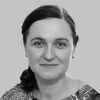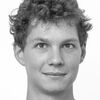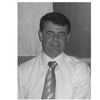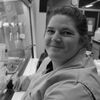ESWI Education Hub provides articles and links to important scientific papers, reviewed by the ESWI Board members, and other online educational activities
- Home
- Education hub
- Experts
Search experts on our site
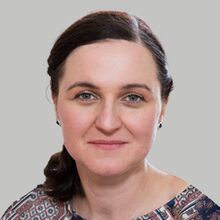
Nationality: German
Position: Head of Department, Leibniz Institute of Virology (Germany); and Professor of Virology, University of Veterinary Medicine Hannover, Germany
Research fields: Interspecies transmission and pathogenesis of influenza A viruses; High-risk groups of influenza (pregnancy, asthma, obesity); New antiviral strategies against influenza
ESWI member since 2009
Gülşah Gabriel is head of the department Viral Zoonoses - One Health at the Leibniz Institute of Virology (LIV) in Hamburg and professor for Viral Zoonoses at the University of Veterinary Medicine Hannover. Her research focus is to understand the molecular basis of influenza A virus interspecies transmission from birds to humans as well as pathomechanisms in high-risk groups.
During the COVID-19 pandemic, her research group was among the first to identify key pathomechanisms that are currently discussed to contribute to long-term consequences after acute respiratory infections. These include SARS-CoV-2 replication in human adipose tissue (Zickler et al., Cell Metabolism 2022) and altered sex hormone metabolism in COVID-19 patients (Schroeder et al., Emerging Microbes & Infections 2021; Stanelle-Bertram et al., Cell Reports Medicine 2023).
In 2009, Gülşah Gabriel was the first winner of the ESWI Best Body of Work Award. She was elected Vice Chair of ESWI in 2014. She has received many prestigious awards for her research, e.g. the Robert-Koch Förderpreis awarded from the Robert-Koch Foundation, the Best Minds Award from the Leibniz Association and the DZIF Award for Translational Infection Research from the German Center for Infection.
Since 2024, Gülşah Gabriel is speaker of the newly established Leibniz Lab Pandemic Preparedness: One Health, One Future that combines the expertise of 41 Leibniz Institutes from various disciplines with practical knowledge to develop evidence-based strategies that permanently strengthen the pandemic resilience of science and society.

Guus F. Rimmelzwaan is Alexander von Humboldt Professor in Virology at the Research Center for Emerging Infections and Zoonoses (RIZ) of the University of Veterinary Medicine (TiHo) in Hannover. His main research interests are virus vaccine development, immunologic defense mechanisms against influenza and other virus infections, Viral immune evasion and Virus-host interactions.
Guus Rimmelzwaan was trained as a biologist (MSc) at the Free University of Amsterdam. He obtained his PhD in 1990 on the thesis entitled “ Canine parvovirus infection: Novel approaches to diagnosis and immune prophylaxis” at the National Institute of Public Health and Environmental Protection, Bilthoven, The Netherlands, where he also worked as post-doctoral fellow on FIV vaccine development between 1990 and 1992. Between 1992 and 1994 he worked as a post-doctoral fellow in the field of HIV-1 vaccine development at the Academic Medical Center in Amsterdam, the Netherlands and at the National Cancer Institute in Frederick, MD, USA. Between 1994 and 2017, he worked as professor in Immuno-virology at the Department of Viroscience of the Erasmus Medical Center in Rotterdam, the Netherlands as workgroup leader of the influenza immunology group.
Guus Rimmelzwaan (co)-authored >330 articles and contributed to various books related to vaccinology. He organized courses in virology for PhD students, postdoctoral fellows and clinical microbiologists and a Practical Training Course in Influenza. He also participated as expert in various national committees on the prevention of influenza.

Hanna Nohynek is a Finnish MD PhD, Chief Physician with special competences in international and travel health. She works in the Infectious Diseases Control and Vaccines Unit, Dept Health Security at the Finnish Institute for Health and Welfare (THL), which is a governmental public health research agency. She served as the secretary of the Finnish NITAG until 8/2023, still being a member, and is chairperson of the WHO SAGE, and former chairperson of the WHO SAGE working group on covid-19 vaccines. After coordinating several Phase II trials and major Phase III trial on 11PCV against childhood pneumonia in the Philippines until 2010, Nohynek joined THL, where her research responsibilities are in register-based vaccine impact studies, evidence-based policy/decision making, vaccine safety, acceptance, SARS-CoV-2, RSV, influenza, and pneumococcus. She co-leads IMI funded PROMISE consortium´s WP Preparation for future RSV product assessment (www.imi-promise.eu) and was co-leading the WP on communications of the IMI-funded DRIVE project (www.drive-eu.org). She authored >180 original articles; lectures, guides elective, graduate and PhD students. She belongs to Scientific Faculty of ADVAC (2000-), initiated EPIET vaccine module (1997-), and the Finnish Diploma Course Global Health (2000-). She initiated THL Finnish Vaccinators Manual and Finnish Travel Health Advisory. She has served expert national and international committees evaluating vaccines, and is advisor to many international organizations, incl European Medical Agency, International Vaccine Institute, Korea and icddr.b, Bangladesh.

Heidi Theeten, MD, PhD, currently has a main position in the infectious disease control team of the Care department (Departement Zorg) of the Flemish government, where she started in October 2020. She joined the vaccine subunit of this team in 2023. Next to this, she has an academic position at the Vaccine and Infectious Disease department, University of Antwerp, where she works since 2001. She coordinated clinical vaccine studies of various diseases, seroprevalence studies at national level as well as vaccination coverage studies in Flanders. As a postdoctoral researcher, she added research on CMV and immunosenescence, and on pneumococcal nasopharyngeal carriage in infants in Belgium. She still teaches in the master of Medicine at UAntwerpen and in the inter-universitary manama Youth Health Care, as an associate professor.
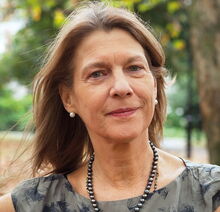
Prof. Heidi J. Larson, PhD, is an anthropologist and Director of The Vaccine Confidence Project (VCP); Professor of Anthropology, Risk and Decision Science, Dept. Infectious Disease Epidemiology, London School of Hygiene & Tropical Medicine (LSHTM); Clinical Professor, Institute of Health Metrics & Evaluation, University of Washington; Guest Professor at the University of Antwerp, and a Chatham House Centre on Global Health Security Fellow.
Prof. Larson previously headed Global Immunization Communication at UNICEF, chaired Gavi’s Advocacy Task Force, and served on the WHO SAGE Working Group on vaccine hesitancy. She is author of STUCK: How Vaccine Rumors Start – and Why They Don’t Go Away (Oxford University Press, 2020). In 2021, she was awarded the Edinburgh Medal and BBC named her as one of the 100 most influential women in the world.
Dr. Larson previously headed Global Immunisation Communication at UNICEF, chaired GAVI’s Advocacy Task Force, and served on the WHO SAGE Working Group on vaccine hesitancy. The VCP is a WHO Centre of Excellence on addressing Vaccine Hesitancy.
Prof. Larson’s research focuses on the analysis of social and political factors that can affect uptake of health interventions and influence policies. Her particular interest is on risk and rumour management from clinical trials to delivery – and on building public trust and public cooperation during emergencies such as disease outbreaks, natural disasters, terrorism and conflict. She served on the FDA Medical Countermeasure (MCM) Emergency Communication Expert Working Group, and is Principle Investigator of the EU-funded (EBODAC) project on the deployment, acceptance and compliance of an Ebola vaccine trial in Sierra Leone. Her research focuses on managing risk and rumours.
Prof. Larson has recently joined the Centre for the Evaluation of Vaccination (CEV) (University of Antwerp) as associate professor, as the CEV at the Antwerp University will host the European regional Office of the Vaccine Confidence Project as of May 15, 2019, and will closely collaborate with VCP partners at European level on implementing the Vaccine Confidence Index and developing and evaluating interventions to address vaccine hesitancy.She is author of STUCK: How Vaccine Rumors Start – and Why They Don’t Go Away (Oxford University Press, 2020).

Biotechnology graduate by Universitat Politècnica de València, with the M.S.c in Nanoscience and Advanced Nanotechnology. I did my thesis at Universitat Autònoma de Barcelona in Professor Gòdia’s group, focused on characterization and purification of virus-like particles (VLPs). I am proactive, self-driven and hard-working. I enjoy working in dynamic, enriching environments, where I can always keep learning and growing personally and professionally.
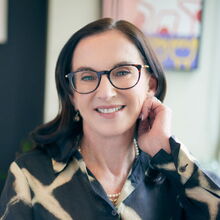
With over 30 years of global leadership in health and ageing, Dr. Jane Barratt is a trusted voice at the intersection of policy, practice, and purpose. As the former Secretary General of the International Federation on Ageing, she has helped shape major international frameworks—from the WHO Immunization Agenda 2030 to the UN Decade of Healthy Ageing—always championing systems that respect and respond to the dignity of older people.
Today, Jane works at the leading edge of global health reform—advising institutions, convening bold conversations, and speaking around the world on what ageing truly demands of us.
Her work bridges silos. Her words move rooms. And her focus is unwavering: evidence, equity, and action.

Janet A. Englund, MD: Professor of Pediatric Infectious Diseases. My research interests include the study of vaccine-preventable diseases and viral respiratory diseases in young children and immunocompromised hosts, including transplant recipients, as well as the evaluation of antiviral therapy for the prevention and treatment of viral diseases.
As a leader in the field of infectious diseases (ID), respiratory viruses, and infections in children, I have particular interests in assessing the epidemiology of the study of viral infections and assessing vaccine effectiveness. As a member of the CDC-sponsored New Vaccine Surveillance Network, I work with Dr. Klein to direct protocol development and patient enrollment to assess viral epidemiology and vaccine effectiveness for acute respiratory and gastrointestinal disease. Our Pediatric ID Research group is actively involved in the follow-up of pregnant women and a longitudinal study of children infected with SARS-CoV-2. Over the past 30 years, I have had extensive experience in initiating, managing, and analyzing clinical trials, vaccine studies, and national and international research protocols, in addition to a track record for successful collaborative research. I have played leadership roles in multicenter, federally-sponsored networks and research trial units, including the NIH-sponsored AIDS Clinical Trials Unit, the Vaccine Treatment and Evaluation Unit, and New Vaccine Surveillance Network (NVSN). My interest in protecting patients from viral diseases has contributed to national and international policies regarding pediatric immunization with rotavirus and papillomavirus vaccines, and maternal immunization with respiratory syncytial virus, influenza and pertussis vaccines. I am enthusiastic to work to further our understanding of important respiratory and enteric viral infections, and to contribute to controlling the spread of SARS-CoV-2.

Dr Jarosław Waligóra is a Deputy Head of Unit in the Health Security unit in the European Commission’s Directorate General for Health and Food Safety. In the same directorate he worked before on heath research, rare diseases, cancer, nutrition and physical activity policy. By training he is Medical Doctor, Paediatrician and specialist in Clinical Genetics. He obtained his PhD at the Medical University of Warsaw.

Dr. Javier Diez-Domingo is Head of the Vaccine Research Department, MD paediatrician (1987), PhD degree (1990).
He has over 235 scientific papers with more than 2.200 citations. He has devoted more than 20 years of clinical epidemiological research on vaccines and immunopreventable diseases, and has worked as PI in more than 40 clinical trials with vaccines. Expert on evaluation of new drugs in paediatrics for the EMA. Member of different Ethics Committees since 2000 and President of the DG-Public Health EC since 2015. Active member of the European Society for Paediatric Infectious Diseases (ESPID), chair of the Committee for Education, member of the Spanish Pediatric Society, the Spanish Vaccinology Association and the International Society for Vaccines.
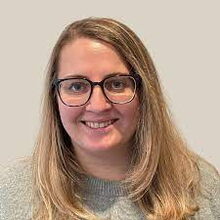
Jenna Guthmiller earned bachelor’s degrees in Biology, Biotechnology, and Microbiology from South Dakota State University in 2013. She earned a PhD in Microbiology and Immunology under the mentorship of Dr. Noah Butler at the University of Oklahoma Health Sciences Center in 2017. She completed her postdoctoral training at the University of Chicago with Dr. Patrick Wilson.
The Guthmiller lab is interested in understanding how broadly protective humoral immunity against influenza viruses develops and can be harnessed by vaccination. We are also interested in understanding the co-evolution of influenza viruses and the humoral immune response.
- The adaptive immune system does not respond to all parts of an antigen evenly, a phenomenon known as immunodominance. In the context of influenza, the B cell response is preferentially induced against the variable epitopes of the hemagglutinin (HA) domain rather than more conserved epitopes of the HA stalk domain. We are investigating the factors that regulate immunodominance and developing tools to shift immunodominance to the HA stalk domain.
- The breadth and specificity of the humoral immune response against influenza viruses is shaped by past influenza virus exposure. We are investigating how past exposures and exposure routes shape the development of broadly neutralizing antibodies.
- Antigenic drift of influenza virus HA is driven to evade host antibody responses. We are dissecting how 1) antibodies against distinct epitopes shape viral evolution and 2) and how viral evolution shapes infectivity and pathogenesis.

Johan Neyts (CV) is full professor of virology at the University of Leuven, Belgium. He teaches virology at the medical school and at the school of dentistry. His lab has a long-standing expertise in the development of antiviral strategies and drugs against emerging and neglected viral infections (such as dengue and other flaviviruses, Chikungunya, enteroviruses, noroviruses, coronaviruses, HEV and rabies). His lab is also intensively involved in the development of antivirals against SARS-CoV2. A second focus of the lab is the development of novel vaccine technologies. To that end the yellow fever vaccine is being used as a vector. Using this technology the team developed a potent single shot SARS-CoV2 vaccine candidate. The PLLAV (Plasmid Launched Live Attenuated Virus) technology, together with the team of Prof. Kai Dallmeier also developed in his lab, allows to rapidly engineer highly thermostable vaccines against multiple viral pathogens. Johan Neyts is past president of the International Society for Antiviral Research (www.isar-icar.com). He is the co-founder of KU Leuven spin-offs AstriVax www.astrivax.com and Okapi Sciences. Four classes of antivirals discovered in his laboratory have been licensed to major pharmaceutical companies (two on HCV, one on dengue and one on rhino/enteroviruses). He published >625 papers in peer reviewed journals and has given ~300 invited lectures; he is regularly interviewed by lay-press.

Johan L. van der Plas is a physician and clinical pharmacologist at the Leiden University Medical Center, the Netherlands. He is currently attending his specialist training to become a certified Clinical Microbiologist. He defended his PhD titled ‘Advances in Clinical Development for Vaccines and Therapeutics against Respiratory Virus Infections’ in 2023. His PhD was conducted at the Centre of Human Drug Research (Leiden) and consisted of early phase clinical trials for vaccines against RSV and influenza, antivirals against SARS-CoV-2 and explored innovative clinical trial and regulatory infrastructures to expedite clinical development of anti-infectives during pandemics. He is an experienced clinical trial manager and functioned as a project leader on more than 15 trials (including compounds directed against RSV, influenza, SARS-CoV-2, malaria and immunotherapy). He is experienced in intranasal administration, (non-)invasive mucosal sampling, handling of GMO-vaccines and the validation and application of controlled human infections models in early phase clinical trials. Next to his clinical work at the university hospital, he is a guest researcher at the Centre of Human Drug Research and sits on a strategic advisory committee for the development of a novel glycopeptide antibiotic developed by the Leiden University.
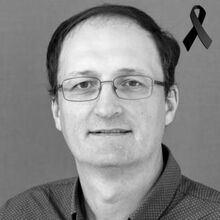
ESWI Tribute to our dear colleague and friend, John Paget 1964-2023
John Paget, senior researcher on infectious diseases at The Netherlands Institute for Health Services Research (NIVEL), was an internationally renowned authority on epidemiology in the field of Influenza, RSV and SARS-CoV-2. He will be remembered for his inquisitive mind and pursuit of tenable solutions to infectious disease challenges. “The diversity makes my work interesting and fun”, he said of his work.
ESWI is very grateful for John’s astute, inspiring, and continuous commitment to educational events on acute respiratory viruses, and for his great support to ESWI Conferences. Our condolences go to his family, his colleagues and the scientific community who worked with him. Gone too soon, he will be dearly missed.

Katherine Kedzierska
Nationality: Australian
Position: Professorial Fellow Microbiology and Immunology, University of Melbourne, Australia
Research Fields: Viral Immunology
Professor Katherine Kedzierska is the Head of the Human T cell Laboratory in the Department of Microbiology and Immunology and an NHMRC Senior Research Fellow Level B. Her principal area of expertise is viral immunology.
She received her PhD from Monash University in 2002. Her PhD, performed at the Burnet Institute with Professor Suzanne Crowe, studied immunity to HIV infection and the mechanisms of disease pathogenicity. As an NHMRC Peter Doherty Fellow in the Department of Microbiology and Immunology with Laureate Professor Peter Doherty, Katherine undertook research into the key mechanisms underlying immunological T cell memory formation and persistence. Subsequently, as an NHMRC RD Wright Fellow, then an NHMRC CDF2 Fellow, Katherine has established her independent research on universal immunity to human influenza viruses.
Katherine’s PhD work was recognised by the 2001 Premier’s Commendation for Medical Research, 2002 Monash University Mollie Holman Doctoral Medal and an NHMRC Peter Doherty Postdoctoral Fellowship to pursue her postdoctoral research with Laureate Professor Peter Doherty. In 2007, she was awarded an NHMRC RD Wright Fellowship and grant funding to establish her own research team. She is currently an NHMRC CDF2 Research Fellow and a group leader of the Human T cell Laboratory. Katherine was the recipient of the 2011 NHMRC Excellence Award and the Scopus Young Researcher of the Year Award and the 2016 Australian Academy of Science Jacques Miller Medal for Experimental Medicine. She is an Adjunct Professor at Fudan University in Shanghai, China and a Co-Director of the Sino-Australia Joint Research Laboratory for the Emerging and Re-emerging Infectious Disease Research, Fudan-Melbourne University, located at the Shanghai Public Health Clinical Centre.
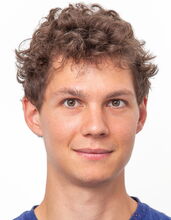
Dr. Kevin Ciminski is a junior research group leader at the Institute of Virology, University Medical Center Freiburg, Germany. His research focuses on virus-host interactions of emerging zoonotic viruses, including the elicited host immune response to viral infections, immunopathology, and transcriptional consequences. Kevin completed his PhD in 2020, studying the previously unknown bat-derived influenza A viruses H17N10 and H18N11 and assessing their zoonotic potential. In 2022, he received seed funding from the University Medical Center Freiburg through the Hans A. Krebs Medical Scientist Program to establish himself as an independent junior research group leader. Since 2023, Kevin is a visiting scientist at the Colorado State University in Fort Collins in the Department of Microbiology, Immunology and Pathology
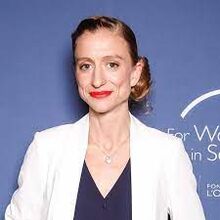
Dr. Kirsty Short is an NHMRC research fellow and head of the viral pathogenesis lab at the School of Chemistry and Molecular Biosciences, The University of Queensland.
Dr. Short and her group focus on reducing the severity of emerging respiratory viral infections. Their group performs a large amount of research on the role of chronic metabolic conditions (namely diabetes and obesity) in severe viral infections. Their work also includes a focus on avian influenza (‘bird flu’) in the context of pandemic preparedness.
Their group also works with SARS-CoV-2 with a particular focus on the role of children in disease transmission, the development of novel therapies and reducing disease severity in patients living with diabetes and obesity.
- The Two-Way Street: When Respiratory Viruses Meet Chronic Illness
- What do B- and T-cells do and how do they respond?
- Should I get the influenza vaccine if I have diabetes and why?
- What is the difference between innate and adaptive immune response?
- Burden of disease - A focus on acute respiratory viruses in older adults
- Spotlight on the burden of flu for people living with diabetes
- Influenza in persons living with diabetes: Pathogenesis and prevention

Dr. Konstantinos Makrilakis is Professor in Internal Medicine, at the first Department of Propaedeutic Medicine and the Diabetes Center, National and Kapodistrian University of Athens Medical School, Laiko General Hospital, Athens, Greece.
Dr. Makrilakis graduated from the National and Kapodistrian University of Athens Medical School (1988), and after completing his PhD at the same University (1992), he did his Residency in Internal Medicine (1993-1996) and Fellowships in Advanced Internal Medicine/Hypertension (1996-1997) and General Internal Medicine (1997-1998), in Chicago, USA. He also completed a “Master’s degree in Public Health” (MPH) in Epidemiology and Biostatistics, at the University of Illinois, Chicago, USA (1999) and is currently finishing Postgraduate Studies in “Health Units Administration” from the Hellenic Open University, Patras, Greece.
He is presently working as a clinical doctor, researcher and educator at the Laiko University Hospital, in Athens, Greece. His research interest is mainly focused on epidemiology and prevention of diabetes and has participated in European Commission-sponsored studies for the prevention of diabetes.
He is a Board member of the Hellenic Diabetes Association; the Hellenic Association of Lipidiology, Atherosclerosis and Vascular Disease and IDF Europe.

Leyla Kragten-Tabatabaie has a background in Medical Biology and received her PhD in Metabolic diseases in children at the Wilhelmina Children’s Hospital, University Medical Center in Utrecht, The Netherlands. Leyla Kragten-Tabatabaie has been involved from the beginning with the inception, shaping and managing of ReSViNET and has a central role in all ReSViNET activities including communications with ReSViNET (scientific) board, involvement in clinical trials and related educational activities and organizing scientific conferences and masterclasses. She has set up and is the former project leader for the RSV GOLD study, is involved in the ReSViNET activities for the RESCEU study and plays a crucial role in all ReSViNET RSV studies regarding patient advisory board activities, peer-to-peer education for the site study team and overall communication lines between the sponsor, project manager and Principal investigator ensuring clinical trials are smoothly and efficiently rolled-out in the network.

Lin H Chen currently works at the Travel Medicine Center, Mount Auburn Hospital. Lin does research in Travel Medicine.

Prof Wang is a Professor in the Programme in Emerging Infectious Diseases at Duke-NUS Medical School and the inaugural Executive Director of the Programme for Research in Epidemic Preparedness and Response (PREPARE), Singapore. He is one of the world’s leading experts in zoonotic diseases, bat immunology and pathogen discovery.
His early research was at the Monash Centre for Molecular Biology and Medicine. In 1990, he joined the Commonwealth Scientific and Industrial Research Organization (CSIRO), Australian Animal Health Laboratory (AAHL) where he played a leading role in identifying bats as the natural host of the Severe Acute Respiratory Syndrome (SARS) virus. His research then extended from bat-borne viruses to better understand virus-bat interaction and how bats co-exist with a large number of viruses without developing clinical diseases. His recent research contributions include developing antibody based serological tests to detect the SARS-CoV-2 virus, responsible for the COVID-19 outbreak, and the early and successful culture of the virus from an infected patents sample. His team is currently focusing on research into the origin of SARS-CoV-2, developing assays which can better assess vaccine efficacy in the context of a potential immunity passport strategy and novel vaccination strategy to broaden protective immunity against future variants and emerging SARS-related coronaviruses.
Prof Wang is a member of multiple World Health Organization committees on COVID-19. His work has been recognised internationally through various international awards, numerous invited speeches at major international conferences and more than 500 scientific papers including many top scientific publications in Science, Nature, New England Journal of Medicine, Lancet, along with nice patents and many invited book chapters. He holds a number of honorary positions and memberships and has received numerous awards. Prof Wang was elected to the Australian Academy of Technological Sciences and Engineering in 2010 and the American Academy of Microbiology in 2021 in recognition of his expertise in new and emerging diseases. He received the Singapore’s President Science Award in 2021. He is also active internationally by serving on various editorial boards for publication in the areas of virology, microbiology and infectious diseases. He is currently the Editor-in-Chief of the Virology Journal.
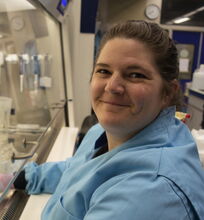
Nationality:
Austrian
Position:
Assistant Professor, Department of Viroscience, Erasmus MC, The Netherlands
Research Fields:
Neuropathogenesis of respiratory viruses, Virus replication, stem cells, organoids, Picornaviruses, Enteroviruses, Influenza A viruses, SARS-CoV-2, Monkeypox virus
Short description:
Lisa is Assistant Professor at the Department of Viroscience at the Erasmus MC. Lisa obtained her PhD in February 2021 in the group of Frank van Kuppeveld at Utrecht University, Netherlands within the European Marie Curie Training Network “Antivirals” where she characterized FDA- approved drugs that inhibit enterovirus replication and developed novel broad-spectrum antientero/rhinovirus compounds. In March 2020, Lisa joined the team of Debby van Riel as a post-doc at the Viroscience Department of Erasmus MC in Rotterdam, Netherlands, where she studied how respiratory viruses spread to extra-respiratory tissues. Her independent research line aims to unravel the complex interplay between viruses and the central nervous system (CNS), focusing on how viruses from various families differentially affect cells of the CNS, trigger neuroinflammation, and disrupt the CNS homeostasis. Her investigation centres on three interconnected questions: (1) how viral infections modulate cellular, immunological, and metabolic responses within neural cells and tissue; (2) viral dissemination pathways within the CNS; and (3) identification of host factors facilitating neuropathogenesis. She employs human induced pluripotent stem cell (hPSC)-derived neural cultures, brain organoids, and organotypic brain slices as experimental models. This platform enabled her to advance our understanding of neuropathological mechanisms in emerging viruses including SARS-CoV-2, MPOX virus, highly pathogenic avian influenza virus H5N1, and enteroviruses.

Dr Louise Rowntree is an early-mid career scientist with extensive expertise in viral immunology in vulnerable populations. Louise completed her PhD in 2016 at Monash University investigating human cross-reactive CD8+ T-cells in viral infections.
She joined Professor Tony Purcell's Laboratory (Monash) between 2016-2018 to further explore T-cell cross-reactivity between viral and self-antigens and identify allopeptides. Louise joined Prof Katherine Kedzierska’s Laboratory (UoM) in 2019, where her work focuses on dissecting anti-viral responses in high-risk groups, including First Nations peoples, patients with co-morbidities, children and pregnant women, with an emphasis on T-cell epitope identification and T-cell responses associated with severe disease.
Louise has worked in viral T-cell immunity since 2011, most recently on influenza and SARS-CoV-2. She has published a number of peer-reviewed research articles, exemplified by a world-first report of a SARS-CoV-2 CD8+ T-cell specificity early in the pandemic (PNAS-2020) and publications detailing the establishment of SARS-CoV-2-specific T-cells following COVID-19 infection in adults (Immunity-2021) and children (Immunity-2022). She is the recipient of an Australian Postgraduate Award (2012), Rutherford Fellowship (2018), Best Oral European Federation for Immunogenetics (2015) and Keystone Symposia Scholarship (2022). Her emerging international profile is recognized by internationally invited talks and selected inter/national abstract presentations with travel grants and speaker prizes.

Lucy Mosscrop is a final year PhD student in the group of Professor John Tregoning at Imperial College London, co-supervised by Professor Maria Zambon (UK Health Security Agency/UKHSA) and Professor Peter Openshaw (NHLI, Imperial College London). Her work is supported by the Health Protection Research Unit in Respiratory Infections in collaboration with UKHSA.
Lucy’s research focus is on respiratory syncytial virus (RSV) specifically the fusion or F protein and how it has evolved and may continue to evolve as new interventions are implemented. As part of this work, she has collaborated extensively with UKHSA to help set up an improved RSV whole-genome sequencing assay (WGS) which has since been used to sequence over 1000 RSV-positive clinical samples from the UK (data available on GISAID). She is using this surveillance data to screen for potential RSV monoclonal antibody resistance mutations and test the biological consequences of these changes via reverse genetics systems. Ultimately hoping to establish a pipeline of surveillance, phenotyping and continuous monitoring.
